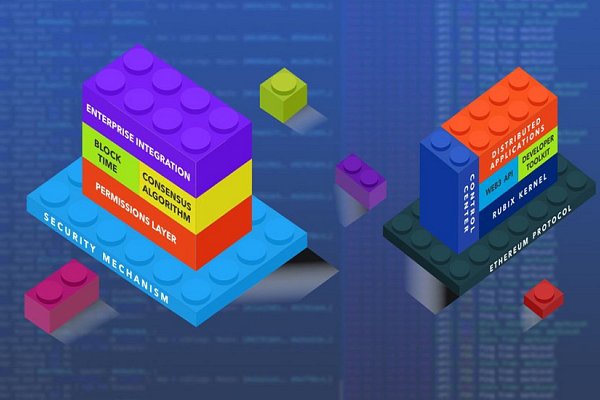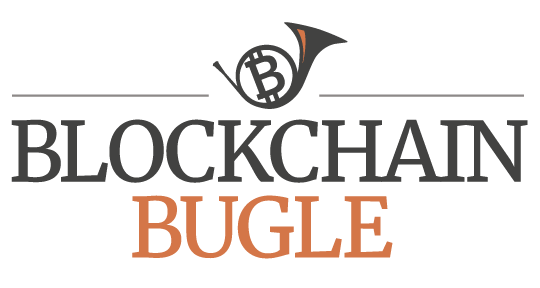Deloitte Team Launches Custom Blockchain Solution Rubix Core

Earlier this month, the Rubix by Deloitte team started rolling out their beta product, Rubix Core, with an early release to a group of selected clients in preparation for an upcoming broader release.
Founded in Toronto by Deloitte in 2014, Rubix wants to bring start-up speed and enterprise reliability to the blockchain market, bridging the gap between the exponentially innovative nature of blockchain technology and the complexity of existing enterprise system environments. The team wants to position itself as an industry-leading blockchain infrastructure provider, focusing on interoperability, scalability, performance and security. Rubix is specifically designed to allow developers to create and deploy decentralized applications in a full-stack blockchain environment customizable for unique industry and business needs.
Rubix Core is a lab-in-a-box solution that allows users to get their hands dirty and build the Distributed Applications (Dapps) of interest to them. In fact, many users are interested in building Dapps that are relevant to their business problems, without (necessarily) having to get into the weeds of the underlying protocol configurations.
“Rubix was born out of necessity,” said Matt Spoke, a cofounder of Rubix by Deloitte. “Necessity to challenge our own status quo. Necessity to fill a gap in the market. And necessity to be part of the change happening in the world.”
Bitcoin Magazine reached out to Iliana Oris Valiente, a cofounder of Rubix by Deloitte, who leads the business development function and general strategy, to find out more about Rubix’s value proposition. Prior to Rubix, Oris Valiente worked in corporate finance and M&A, specializing in valuations for technology and resource companies, business strategy, financial diligence and models, operations and marketing.
Oris Valiente explained that the Rubix team has built an Ethereum compliant enterprise infrastructure, as well as a set of GUI tools that make it simple for an enterprise developer to create smart contract Dapps.
“Our approach is to develop the tools that allow our user community to rapidly build blockchain prototypes while remaining true to our mission: Continue to build technology that enables users to get out of the testing lab and into production environments,” she told Bitcoin Magazine. “This is no small feat, since it requires a mindful approach to scalability, security and interoperability considerations. The market (both the blockchain industry and the enterprise world) have evolved tremendously since our launch in 2014. Not surprisingly, our technology, operating model and the strategy around our involvement in the open source community have evolved as well.”
Oris Valiente explained that Rubix’s goal is to fill a niche in the enterprise blockchain market ‒ providing a full stack infrastructure and a customized support structure that’s flexible enough to meet the needs of the company’s clients.
“Every business is different; business models, industry requirements, operating models, access to deep technology development expertise internally, blockchain strategy and appetite for innovation being just some factors,” she said. “We recognize that some clients are at a stage where they require a comprehensive solution with a customizable blockchain configuration; meanwhile for other users, access to the Rubix Core lab environment gives them the flexibility to get started with prototyping. While we continue to work with clients individually, we are excited to also provide the tools that empower users to unleash their creativity in designing and building unique solutions for their business requirements.”
The involvement of Deloitte gives extra credibility and clout to Rubix’s claims. Considered one of the Big Four auditing firms along with PricewaterhouseCoopers, Ernst & Young, and KPMG, Deloitte is the second-largest professional services network in the world by revenue and the largest by the number of professionals. The company provides audit, tax, consulting, enterprise risk and financial advisory services with more than 200,000 professionals in more than 150 countries. Therefore, Deloitte’s support is likely to help Rubix capture a large, high-profile user base.
Oris Valiente explained that Rubix is a technology venture backed by Deloitte, and it operates as a startup focused on developing a full-stack blockchain infrastructure used by clients as well as by many internal Deloitte teams. “When it comes to client-specific projects to develop distributed applications, we have the ability to work closely with Deloitte subject matter experts to provide additional insights on the relevant industries that our clients operate in,” she said.
“We have quite the unique story, actually, for how we came about,” Oris Valiente told Bitcoin Magazine. “My interest in blockchain was piqued in back in 2012 and I’ve been an avid supporter of the Bitcoin ecosystem since. Since I was working at Deloitte, in a corporate finance background, I often wondered if the firm would ever take an active role in this industry. Turns out that I wasn’t the only one thinking about this. Luckily, the Canadian CEO of Deloitte is a major supporter of innovation and launched a ‘CEO challenge,’ inviting all employees to submit ideas for new service offerings or any other idea that could change the way we operated as a business.”
“I was part of a small team of self-identifying blockchain enthusiasts that put together a proposal for what would eventually become Rubix,” Valiente continued. “Out of 600-plus ideas, we were shortlisted into the top twelve, top five, and eventually were selected as one of the top ideas to receive seed funding. This was back in the fall of 2014, and, at the time, we projected that our focus would be on consulting and integration services for this new industry. However, as we started working with clients and getting ever more connected into the blockchain ecosystem, we realized that there was an opportunity to fill a market need by building the blockchain infrastructure that is tailored to the unique needs of enterprises.”
“We’re very fortunate that Deloitte made the leap to invest in this evolving space, despite the fact that in 2014 very few large corporations were seriously considering the implications of this technology,” concluded Oris Valiente. “Since our inception, Deloitte has been a great enabler, giving us the autonomy to develop our strategy, pivot, invest in growing a technology team and go through the necessary research and development phases, that ultimately bring us to where we are today.”
The post Deloitte Team Launches Custom Blockchain Solution Rubix Core appeared first on Bitcoin Magazine.


